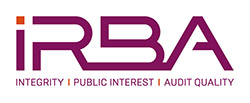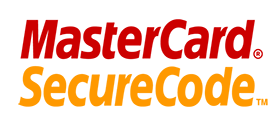Slight improvement in perception of auditing and accounting standards and shareholder governance
|
Johannesburg, Wednesday, October 9, 2019 – The World Economic Forum’s Global Competitiveness Report was published on Tuesday (October 8) and reveals a slight improvement in the perception of shareholder governance and the strength of auditing and accounting standards. According to the Independent Regulatory Board for Auditors (IRBA) CEO, Bernard Agulhas, this can be attributed to a number of factors. The strength of auditing and accounting standards increased its score from 64.6 to 67.5 and South Africa’s ranking improved six points from 55 in 2018 to 49 out of 141 countries surveyed. Shareholder governance also improved from a score of 60 to 67 and the country is now ranked 37, up from 56 in 2018. “The collapse of some high profile companies highlighted the lack of regulation and oversight of the broader financial reporting chain and emphasised the importance of the contribution of those charged with governance to prevent business failures through appropriate and effective controls. While we may continue to see high profile business collapses, there is nevertheless some hope that we are moving in the right direction. “The public conversations in the last year have refocused the broader accounting profession’s attention on the combined assurance model, a need for comprehensive regulation of the financial reporting chain and the importance of educating investors on the roles of each function in the financial reporting process. Investors are therefore more informed and taking greater interest in governance processes, which is a positive development. “We have also seen visible initiatives and collaboration from the profession which focuses shareholders and audit committees’ attention on concerns around the independence of external auditors and audit quality, as well as on measures to strengthen the financial reporting chain. “The IRBA has been clear in stressing that the external auditor, as the final line of defence, comes in at the end of a process in which there are various role-players, each with responsibilities to implement controls and measures to prevent fraud, corruption and malfeasance. That said, we have also identified a need for the auditor to increase the amount of work on the audit as it relates to the identification of fraud.” During the year exposure drafts for new standards around audit quality have been issued. These new standards, once adopted, will address key areas such as quality at an audit firm and engagement level including requirements for the firm and the engagement teams to respond with appropriate measures to address any identified quality risks, as well as defining new requirements for the appointment and eligibility of engagement quality reviewers, the level of performance of the engagement quality review and documentation of the review process. In other initiatives to restore confidence in auditing, the IRBA put out a call for audit firms to produce transparency reports to assist, inter alia, audit committees. Some audit firms have published Audit Firm Transparency Reports, which provide insight into their quality management systems, firm structures, and inspection results. The current transparency reporting process is voluntary, and it is expected that mandatory transparency reports for certain firms will be prescribed in future. To assist committees in considering audit quality during their appointment and reappointment decisions, the IRBA has identified a set of Audit Quality Indicators (AQIs). These are a set of comparable measures covering independence, review, workload and training, which supports comparison between firms and may assist in benchmarking. The AQIs are available from firms and have also been submitted by the firms to the IRBA to enhance its regulatory understanding of quality risks that firms face, and to provide feedback to the market in the form of a feedback report. Furthermore, the IRBA developed a research paper for National Treasury which outlines a business model and implementation recommendations for comprehensive regulation of the financial reporting eco-system, which has been submitted to the Minister of Finance for consideration. Concludes Agulhas: “There are many factors and initiatives underway which will continue to improve sentiment and change perceptions. Without a doubt, the profession had another Enron moment in 2017 and it has suffered significant reputational damage, however, as we can see it is slowly starting to change. We need to continue to pursue renewed commitment to both quality and the public interest, in order to continue in this direction. I am pleased with the level of collaboration from stakeholders and professional bodies on developing solutions with the regulator. It is clear that there is a recognition that all stakeholders must work together in order to restore the auditing and accounting profession to its former stature.” Ends
More about the IRBA: The IRBA is a public protection statutory body established to protect the financial interests of the public by ensuring registered auditors and their firms deliver services of the highest quality. It upholds audit firm independence to ensure that audit quality is such that it enhances the accuracy and credibility of financial performance reporting. In this way, the IRBA has an important role to play in building the reputation of South Africa as an investment market for both local and global investors and driving economic growth for the country. The IRBA also registers suitably qualified accountants as auditors, who must adhere to the highest ethics standards, and promotes the auditing profession through the effective regulation of assurance conducted in accordance with internationally recognised standards and processes.
|





